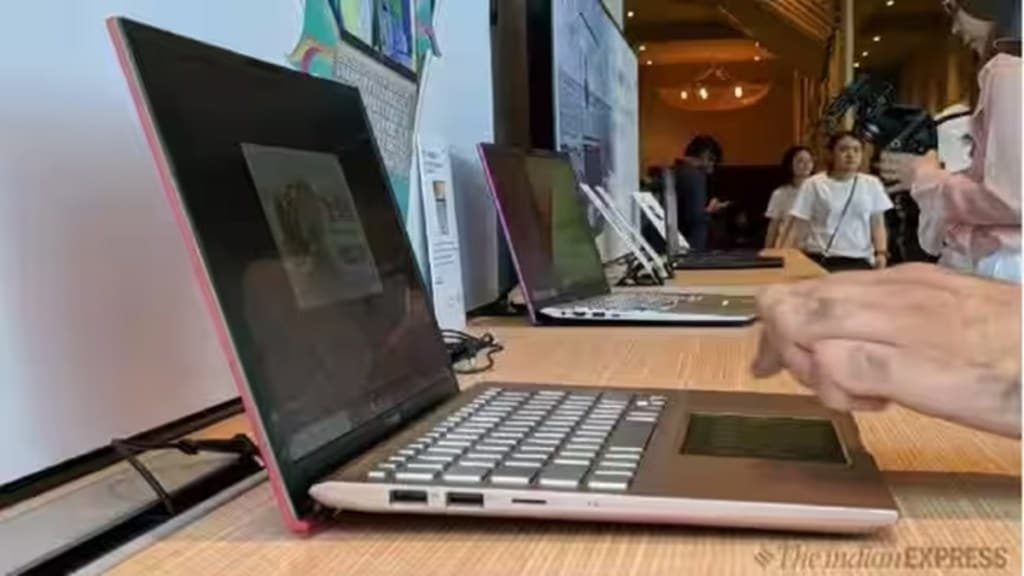The government is likely to extend the deadline for implementing licensing of laptops, tablets, personal computers and servers by around 9-12 months beyond the current one, which kicks in from November 1. Sources said that discussions between the government and industry are at an advanced stage on this front, and it is felt that since the response to the Rs 17,000-crore IT hardware production-linked incentive scheme has been quite positive, a year’s time should be given for results to show on the domestic manufacturing front.
Another factor, which has weighed in favour of deferring the November 1 deadline, is that there has been a surge in smartphones and electronic exports in FY23, which could be adversely impacted if any kind of similar retaliatory import restrictions are levied by countries like US. For instance, in FY23, India exported smartphones worth $11.1 billion, up 96% year-on-year, and a substantial chunk of this went to US. Any retaliatory move by US Administration against India may adversely hit the smartphone PLI.
The first two months of the current financial year saw the US emerging as the biggest market for India-made smartphones, with shipments growing by 775% Y-o-Y. The country exported $2.4 billion worth of smartphones in April-May this year, of which $812.49 million or a third went to the US. In contrast, smartphone exports to the US stood at just $92.2 million or barely 10% of the total a year ago. In fact, smartphones have become the second biggest item of exports to the US.
Similarly, electronics exports from India in FY23 rose 57% YoY to $23.6 billion and became the sixth largest among other products, up from ninth place four years back.
Sources said that retaliatory moves by the US Administration cannot be discounted, as eight industry associations whose membership includes the likes of Apple, Amazon, AMD, HP, Dell, Intel, Cisco, Samsung, IBM, Meta, and Micron among others, have already written to the US Government to urge the Indian Government to reconsider implementation of import licensing and launch a stakeholder consultation to formally solicit recommendations from industry and all relevant stakeholders.
The companies have pointed out that the licensing regime will affect imports of products made by US companies, including some products manufactured in the United States.
Even domestic tech industry body, Nasscom has requested the government to put in abeyance and review its decision on import licensing as it will hit the $245 billion Indian IT industry severely.
Meanwhile, minister of state of electronics and IT, Rajeev Chandrasekhar on Monday said that what is being viewed as import restrictions is actually an import management system. “There is no import restrictions, what we are saying is that we will have an import management system where we are doubly sure that the equipment, servers, and laptops that are coming into the Indian digital ecosystem are from trusted sources. Unfortunately, that communication was misconstrued as a licensing attempt. It is not an attempt to license,” Chandrasekhar said.
However, he did not answer to a specific query whether the government is planning to extend the deadline of November 1.On August 3, the government had announced immediate restrictions on the imports of laptops, tablets, and PCs and notified that the companies will be able to import such products only after a valid licence. However, the very next day upon the request of the industry for a larger consultation, it extended the deadline to November 1.Apart from concern around immediately starting manufacturing in India and finding out supply chain partners, the industry said that the import curbs will also increase the prices of such devices in the Indian market. Last week, the government received 40 applications for the Rs 17,000-crore IT hardware PLI scheme 2.0, to manufacture laptops, tablets, all-in-one PCs, servers, etc. Of the 40 applications, 33 domestic companies and 7 global companies have applied. According to government estimates, incremental production is expected to be Rs 4.65 trillion including exports of Rs 28,288 crore. Based on the proposals received, the incremental investment is expected to be Rs 5,010 crore.


